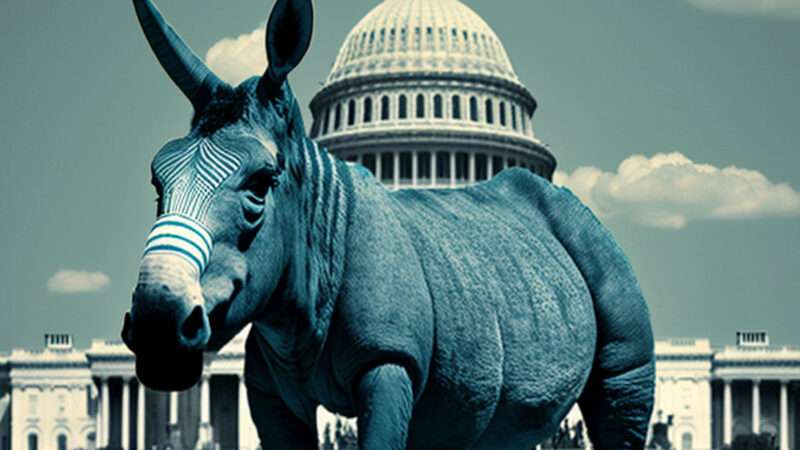
An epithet has emerged on the post-liberal fringes of the online conservative movement: right-liberal. It's a term these critics apply to libertarians, old-school Reaganite conservatives, and anyone else who prefers individualism to collectivism or believes that it benefits everyone to keep markets as free as possible from government meddling.
Liberal in this context means classically liberal, the political outlook that emphasizes individual rights, limited government, and the rule of law. But the writers who deploy this supposedly disparaging sobriquet hope that rank-and-file conservatives will hear liberal and assume a leftist orientation.
"America is an idea," scoffed Newsweek Opinion Editor Josh Hammer in a recent tweet. He attributed that sentiment to "every right-liberal and left-liberal platitude-regurgitator ever." Note the facile elision of any difference between the two groups: To be a "right-liberal," in Hammer's formulation, is no better than to be a Democrat.
Yet right-liberalism and left-liberalism, to borrow the terms, are not exactly interchangeable. Old-fashioned American conservatives favor deregulation, legal protection of private property, free trade, decentralization of power, and reliance on a thick stratum of community institutions ("little platoons") rather than government to solve social problems. Left-liberals—a.k.a. progressives—favor nationalization, bureaucratization, standardization, regulation, taxation, and redistribution. On the American right, their position has long been viewed as a rejection of core conservative commitments.
The journalist Matthew Continetti put it well at a conference last November. "The classical liberalism that we're talking about, I think, is the liberalism enshrined in the Declaration of Independence," he said. "But there's another liberalism. There is modern liberalism, or progressivism, which the conservative movement has traditionally understood itself in opposition to."
Post-liberal scribblers like Hammer "collapse distinctions," Continetti noted. "It's all one thing. Everything that conservative movement figures for decades said was a problem of modern liberalism or progressivism, they say, actually stems directly from the American founding."
But the invocation of "right-liberalism" is ironic as well as facile, because the post-liberals who disparage it are unapologetic proponents of actual left-wing policies, such as tariffs, industrial subsidies, and aggressive antitrust action, even against companies that don't meet the traditional definition of monopolies. It would be no exaggeration to designate this cohort right-progressives. And just about the only thing that makes them right is that they hope to use their power, once attained, to enforce aspects of traditional religious morality rather than left-wing identity politics.
In a recent American Affairs article, for example, the University of Dallas political scientist Gladden Pappin chastised old-fashioned conservatives for fretting about government spending and opposing student loan forgiveness. Instead, he proposed that the GOP adopt "a positive governing agenda that would use the power of the state to bolster the national industrial economy and support the American family"—i.e., corporate and individual welfare.
Pappin is not the only one. A few years ago, you may recall, MAGA hero Tucker Carlson praised the "economic patriotism" of a plan from Sen. Elizabeth Warren (D–Mass.) on his show. More recently, Sens. Marco Rubio (R–Fla.) and Josh Hawley (R–Mo.) outflanked the Biden administration by siding with a rail workers union that was demanding more generous benefits. When an observer suggested that the post-liberal journalist Sohrab Ahmari and his pals might accurately be called "pro-life New Dealers," Ahmari welcomed the label. Later, on Twitter, he came out emphatically "FOR the administrative state."
Conservatives of the "right-liberal" variety have long recognized the problems with this approach: the dangers of empowering unelected bureaucrats; the futility of trying to beat the left at the game of buying voters' favor through federal spending; and the reality that many of the country's intractable problems are the result of previous government interventions. When it comes to deindustrialization, "one major cause is America's regulatory structure, which is a function of progressivism," Continetti pointed out last fall. "One of the reasons the industries left America was they cannot compete, because of environmental regulations, labor force regulations, the tax burden. Companies ship jobs overseas because America makes it very hard for them to do business here."
Right-progressives see the left's mistakes and call for doubling down on the hubris that produced that wreckage. Let's hope conservatives decline the invitation.
The post The Rise of Right-Progressivism appeared first on Reason.com.







